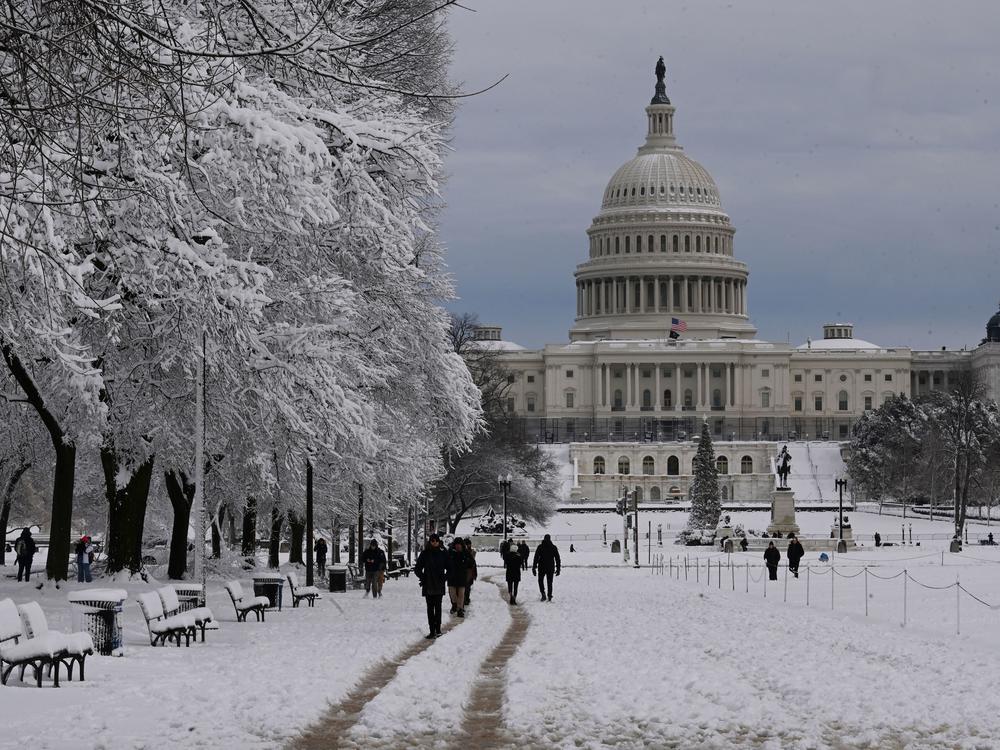Section Branding
Header Content
Congress' doctor urges lawmakers to work remotely and upgrade masks as omicron rages
Primary Content
The chief doctor for Congress is urging lawmakers and staff members to take greater precautions in protecting themselves from the coronavirus as the U.S. Capitol grapples with an explosive spike in COVID-19 cases.
The Capitol's attending physician, Brian Monahan, said Monday that the Capitol COVID-19 testing center's seven-day "positivity rate went from less than 1 percent to greater than 13 percent" since the end of November.
In a letter to congressional offices, Monahan advised members to shift toward remote work, noting that hundreds of people have been infected. For those choosing to remain on the Hill, he suggested cloth face coverings should be swapped out with more robust N95 or KN95 masks.
"Congressional offices, Committees, and Agencies should immediately review their operations to adopt a maximal telework posture to reduce in-person meetings and in-office activities to the maximum extent possible," Monahan wrote.
The surge of positive cases at the Capitol mirrors what is happening throughout Washington, D.C. — the city is posting its highest infection rates and hospitalization rates of the pandemic — and across the country, as the highly infectious omicron variant pushes cases to all-time highs.
Monahan noted that most of the cases on the Hill are due to the omicron and delta variants. As of Dec. 15, he wrote, a limited sampling of cases showed 61% of cases were linked to omicron and 38% were linked to delta. Recent cases also appear to be breakthrough infections in people who are vaccinated. He said that so far, no one has reported serious complications, hospitalizations or deaths.
The role of attending physician to Congress was created more than 90 years ago in an era in which an alarming number of lawmakers died each year. The causes of death ranged from overwork to an influenza outbreak.
"In 1928 alone, incumbent members of the Senate and House were dying at the appalling rate of almost 20 per year," according to the Senate's website.
Despite the skyrocketing case numbers at the Capitol, it is not likely the place where lawmakers and staffers are becoming infected, according to Monahan. "While many infections can be detected through workplace testing, the most common risk of acquiring infection is the individual's activities outside the workplace, such as attendance at receptions, entertainment venues, celebrations, family gatherings, travel, and crowded indoor situations," he said.
The Senate is scheduled to be in session this week, although a heavy snowstorm brought an early end to Monday's session. Meanwhile, some House members plan to attend events around the first anniversary of the Jan. 6 insurrection.
Copyright 2022 NPR. To see more, visit https://www.npr.org.

